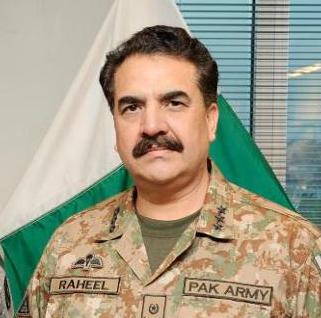 |
| Image: Wiki Commons |
By Ankit Panda
General Raheel Sharif will retire at the end of his scheduled term as chief of army staff.
General Raheel Sharif, Pakistan’s chief of army staff, announced on Monday that he would retire at the end of his term on November 29, 2016, forgoing the option of extending his time on the job. “I do not believe in extension and will retire on the due date,” Sharif said on Monday. His predecessors Ashraf Pervez Kayani and Pervez Musharraf availed of an extension (the latter also ruled as president after a coup in 1999).
Sharif’s decision to retire puts him out of sync with his immediate predecessors and restores a degree of predictability to Pakistan’s military leadership. Before Musharraf, going back all the way to Muhammad Zia-ul-Haq, Pakistan’s military dictator in the late-1970s and 1980s, every chief of army staff left the post within three years. Sharif’s decision to publicly announce his intention to retire well in advance of the November 2016 deadline can thus be seen as a positive development.
Pakistan’s military has ruled the country for most of its 67-year history. Nawaz Sharif’s (no relation to the general) election in 2013 marked the first successful transfer of power from one democratically elected government to another in the country’s history. Now, Raheel Sharif’s decision to retire by the customary deadline preserves at least the appearance that civilian supremacy persists in Pakistan.
However, while Sharif is breaking with his predecessors in his decision to retire, he has not broken with them in terms of moving the Pakistani military away from exercising undue influence over the country’s foreign and security policy. The civilian government under the prime minister remains weak–particularly since widespread populist protests against its legitimacy in the second half of 2014. As his term has gone on, the general has stepped up the visibility of the military in the country’s security policy. Notably, complaints from Pakistan’s neighbors about the Pakistani military’s continued support for militants have persisted throughout Sharif’s tenure.
Read the full story at The Diplomat
